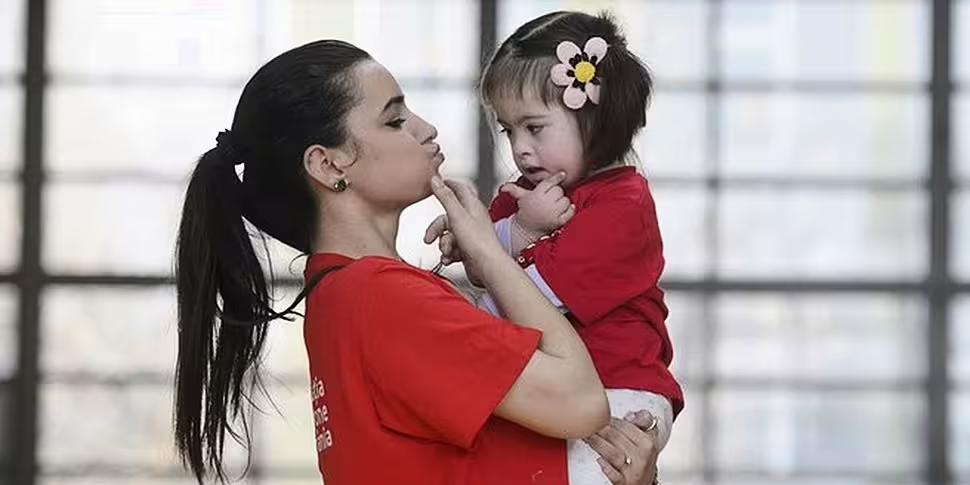Non-Invasive Prenatal Testing is able to tell pregnant women, with 99% accuracy, whether their babies have Down Syndrome.
While the test has been around for awhile it is slowly being rolled out publicly across several countries.
In Denmark, where tests for Down Syndrome are widely available, just 10 children were born with the disability last year.
Pat Clarke from Down Syndrome Ireland has said that given the population of the country, the should have been around 120.
Speaking on Newstalk Breakfast, he said that he believes that in certain countries there is pressure being put on expectant mothers to test their babies for Down Syndrome, and to terminate pregnancies following a positive result.
"We are facing a situation where in the developed world, there is going to be fewer and fewer babies born with Down Syndrome, and ultimately in the developing world there will be continued increases in numbers."
He said this is the reason the UN introduced 'World Down Syndrome Day', so countries are obliged to raise awareness on the condition and to protect families in the developing regions.
"The fact that you have a disability does not mean you are going to lead an unsatisfactory life," he added.
Mary Doherty, whose eight year old son Aaron has Down Syndrome, reiterated his point.
"It’s a societal problem that we don’t see people with disabilities as the human beings that they are, and the abilities that they have and what they have to offer the world."
"They are absolutely valuable people, but unfortunately society doesn’t see people with disability like that."
She also gave her view of the test: "It saddens me that it has become a topic like this. What we need to be promoting is people with Down Syndrome and their abilities."
Mary said she chose not to have the test even after she had her son Aaron: "There wasn’t anything I was going to do about it if my second or third child had Down Syndrome."
Pat Clarke explained that testing before birth is not a new development: "This is something that has been with us for the better part of 40 years."
Originally there was the amniocentesis test which was quite invasive and could lead to spontaneous terminations.
Pat said it was also highly unreliable and "research has shown that up to 700 babies in the UK were terminated in the UK who didn't have Down Syndrome despite the test showing up that they did".
He also said that Down Syndrome Ireland and organisations internationally don't tend to take a hard-line view on the test.
"It would be parental choice and we would not try to intervene in any family’s decision because we don’t know what their particular circumstances are."
"What we would advise is they get good information that takes into account their values and their culture, and to get information about the disability itself."
Pat said he has come across cases where expectant mothers receive the news of a positive result and then are given no follow up information in terms of the disability, support services or where to get more information.
Non-Invasive Prenatal Testing is not not funded by the Health Service Executive (HSE) in Ireland, but can be carried out privately for a fee.









